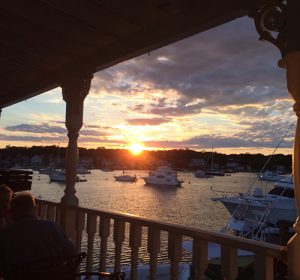
I once had a dream, within which was a contained a thread about my own work. I know – imagine that. A couple of tidy realizations were clouded (dreamlike) with an allusion to the titles of my next three books – what were they? It plagued me for days, as they were three titles I had not yet imagined. I’m getting close to another one, but that would be a fourth story. Let’s stick to three:
Trimming the fat in all the wrong places. That the Grey Lady is also not immune to corporate misgovernance is sad and depressing, and even though we’ve known for a very long time of its myopic shortcomings, it’s rather pathetic to see the paper of record put a knife to its own throat:
Staffers at the New York Times staged a newsroom walk out on Thursday as a demonstration of solidarity as management threatens job cuts. The protest followed a pair of letters sent earlier in the week to Executive Editor Dean Baquet and Managing Editor Joseph Kahn by Times reporters and copy editors.
Cartoonish evil. The problems with putting a imbecilic grifter in the most powerful office in the world has, by definition, no possible limits. Not even going to link to any because what’s the point.
The foreignness of policy disruption or, let’s defend a former Exxon-Mobile CEO. While it’s imaginable that a Secretary of State might have disagreements with her boss, it’s difficult to understand the chain of events that leads one to accept a ‘high’ position in this administration. Did you ask yourself, ‘what do I have to lose?’ Did you answer in the space provided?
A close associate of the secretary of state says that Tillerson was not only “blind-sided by the Trump statement,” but “absolutely enraged that the White House and State Department weren’t on the same page.” Tillerson’s aides, I was told, were convinced that the true author of Trump’s statement was U.A.E. ambassador Yousef Al Otaiba, a close friend of Trump son-in-law Jared Kushner. “Rex put two-and-two together,” his close associate says, “and concluded that this absolutely vacuous kid was running a second foreign policy out of the White House family quarters. Otaiba weighed in with Jared and Jared weighed in with Trump. What a mess.”
Image: author photo of OB, while we were away last week.
